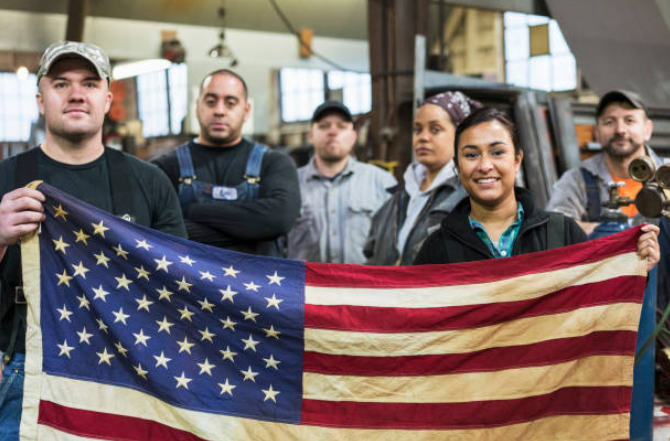Welder Jobs In Canada with No Certification Required
Welding is a skilled trade that involves joining metals together using heat and pressure.
It’s a versatile profession with a wide range of applications, from construction and manufacturing to automotive and aerospace industries.
If you’re looking to start a career in welding without formal certification, Canada offers numerous opportunities.
What is a Welder?
A welder is a skilled craftsman who uses various welding techniques to join metals.
They work with different types of welding equipment, such as arc welders, MIG (metal inert gas) welders, and TIG (tungsten inert gas) welders.
Welders play a big part in various sectors, including construction, manufacturing, shipbuilding, and automotive.
Why Choose a Welding Career in Canada?
Canada offers a thriving economy and a growing demand for skilled tradespeople, including welders.
With numerous infrastructure projects, manufacturing facilities, and industrial developments, there are ample job opportunities for individuals interested in welding careers.
Additionally, welding is a well-compensated trade, with competitive salaries and potential for advancement.
Do You Need a Certification to Become a Welder in Canada?
While certifications can enhance your job prospects and earning potential, it’s not always a strict requirement for entry-level welding positions.
Many employers are willing to hire individuals with relevant experience and a strong work ethic.
However, obtaining certifications can demonstrate your commitment to the trade and open doors to higher-paying jobs and specialized roles.
What Are the Different Types of Welding Jobs in Canada?
The welding field offers a variety of job roles, each with its unique responsibilities and requirements.
Some common types of welding jobs include:
- Construction Welder: Specializes in welding structural components for buildings, bridges, and other infrastructure projects.
- Manufacturing Welder: Works in factories to fabricate metal products, such as machinery, equipment, and automotive parts.
- Pipeline Welder: Joins pipes for oil and gas pipelines, often working in remote locations.
- Shipyard Welder: Welds metal components for ships and other marine structures.
- Maintenance Welder: Repairs and maintains equipment and machinery in various industries.
What Skills Are Required to Become a Welder?
To succeed as a welder, you need a combination of technical skills, physical abilities, and interpersonal qualities.
Some essential skills include:
- Manual dexterity: The ability to use welding tools and equipment with precision.
- Mechanical aptitude: Understanding of how machines and equipment work.
- Problem-solving skills: The ability to identify and resolve issues during welding processes.
- Attention to detail: Ensuring accurate and high-quality welds.
- Physical fitness: The capacity to perform physically demanding tasks, such as lifting heavy objects and working in confined spaces.
How Can I Get Started as a Welder Without Certification?
There are several ways to enter the welding field without formal certification:
- Vocational or technical training: Enroll in a welding program at a vocational or technical school to acquire the necessary skills and knowledge.
- Apprenticeship: Apply for an apprenticeship program with a qualified welding company to gain on-the-job training and mentorship.
- Community college: Consider taking welding courses at a community college to enhance your skills and qualifications.
- Self-study: Explore online resources, books, and tutorials to learn welding techniques on your own.
What Are the Career Advancement Opportunities for Welders?
With experience and skill development, welders can advance their careers in various ways:
- Specialization: Focus on a specific area of welding, such as underwater welding or robotic welding.
- Supervision: Become a welding supervisor or foreman, overseeing the work of other welders.
- Entrepreneurship: Start your own welding business, providing services to clients in construction, manufacturing, or other industries.
- Education: Pursue further education, such as obtaining welding certifications or a welding engineering degree.
How Much Can a Welder Earn in Canada?
Salaries for welders in Canada vary depending on factors such as experience, location, specialization, and employer.
However, welding is generally a well-compensated trade, with competitive wages.
The average salary for a Welder is $29.05 per hour in Canada.
As you gain experience and expertise, your earning potential will increase.
What Are the Challenges and Risks Associated with Welding?
While welding can be a rewarding career, it’s important to be aware of the potential challenges and risks involved:
- Physical demands: Welding can be physically demanding, requiring strength, endurance, and good health.
- Safety hazards: Welders must take precautions to protect themselves from burns, eye injuries, and exposure to harmful fumes and gases.
- Job security: The welding industry can be cyclical, with fluctuations in demand based on economic conditions.
How Can I Find Welder Jobs in Canada?
There are several resources to help you find welding job opportunities in Canada:
- Online job boards: Explore popular job boards like Indeed, LinkedIn, and Glassdoor.
- Local newspapers: Check the classified ads in local newspapers for welding job postings.
- Employment agencies: Contact specialized employment agencies that focus on skilled trades.
- Networking: Build relationships with other welders and industry professionals to learn about job openings.







